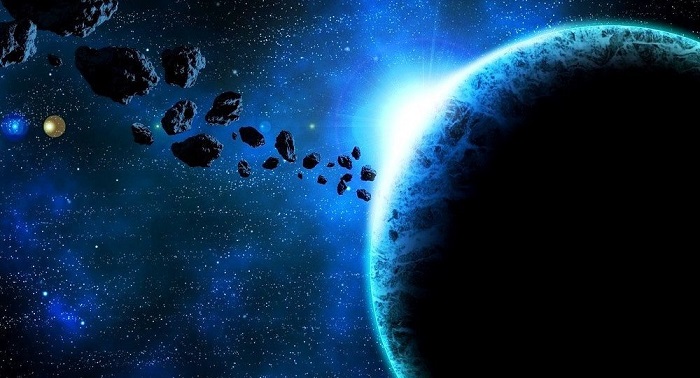With a solar orbit of approximately 1,140 years, a new dwarf planet named 2014 UZ224 has been found by the Dark Energy Camera.
"2014 UZ224 is the third-furthest known object of significant size from the Sun while still a member of the Solar System," said Manfred Cruz, an astrophysicist with the University of Texas at Arlington, according to the International Business Times. "Understanding objects beyond planet Neptune, thus located at the outskirts of the Solar System, provides important clues about the origin and formation process of the Solar System, including processes taking place thereafter."
With a diameter of only 330 miles, the new dwarf planet is roughly half the size of Pluto.
The Dark Energy Camera looks for objects moving through a particular patch of the night sky. The team’s software allowed them to track these movements more efficiently, which led to the discovery. The International Astronomical Union (IAU) defines a dwarf planet as "a celestial body that (a) is in orbit around the Sun, (b) has sufficient mass for its self-gravity to overcome rigid body forces so that it assumes a hydrostatic equilibrium (nearly round) shape, (c) has not cleared the neighborhood around its orbit, and (d) is not a satellite."
There are currently five dwarf planets: Pluto, Ceres, Eris, Haumea, and Makemake. While 2014 UZ224 would be the sixth, its small size may not ultimately fit the IAU’s criteria.
Still, the space beyond Pluto is filled with various celestial bodies that are waiting to be discovered. "Objects found far beyond Neptune hold the key to unlocking our Solar System’s origins and evolution," Scott Sheppard of the Carnegie Institution for Science, said in a statement, according to the International Business Times. "Though we believe there are thousands of these small objects, we haven’t found very many of them yet, because they are so far away. The smaller objects can lead us to the much bigger planet we think exists out there. The more we discover, the better we will be able to understand what is going on in the outer Solar System."
More about:
















































